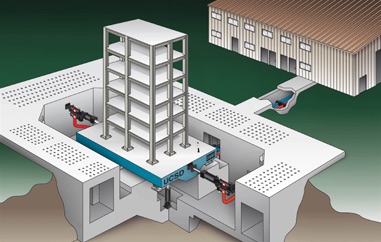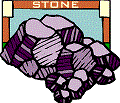LABLE
- MEDIA (37)
- CIRCULAR (36)
- STUDY MATERIALS (31)
- ASSIGNMENTS (23)
- TIME TABLES (23)
- SYLLABUS (19)
- ABOUT US (6)
Notification's
22 April 2022
30 August 2020
CIVIL PROJECT TITLES 3
Engineering Materials
|
Building Construction
|
Highway & Transportation Engineering
|
Environmental Engineering
|
Softwares And Computer applications
|
Irrigation & Water Resources Engineering
|
Soil Mechanics & GeoTechnical Engineering
|
29 August 2020
28 August 2020
24 August 2020
Greetings of the day...!!!!
☆ Kodada Institute of Technology and Science for Women,Kodad,T.S ☆
*Department of Civil Engineering is conducting online Quiz on dated 25th to 30th Aug 2020
There are 40 Multiple choice questions.
Participants will get an e-Certificate upon scoring 50% or above.
*Note:Write your valid email address, Full Name, Branch & College Name for certificate.
To participate in this Quiz, click on the link below:
https://forms.gle/iGHDmit6PxU4HZwQ9
M.Suneetha
Quiz Coordinator
P.Janardhan
Head - Civil Department
Dr. Ch.Nagarjuna Rao -
Principal*
Share to all ¥
BEST, Zalki Pleads you to Stay Safe & Maintain Social Distancing
24 January 2020
03 January 2020
19 December 2019
R18 B.Tech 2 Year CE Syllabus JNTUH....Download here
R16 B.Tech 3 Year CE Syllabus JNTUH...Download here
R16 B.Tech 4 Year CE Syllabus JNTUH....Download here
R16 B.Tech Open Elective 1&2 syllabus....Download here
13 September 2019
13 August 2019
10 July 2019
16 April 2019
|
BRANCH
|
22-04-2019
FN
MONDAY
|
22-04-2019
AN
MONDAY
|
23-04-2019
FN
TUESDAY
|
23-04-2019
AN
TUESDAY
|
24-04-2019
FN
WEDNESDAY
|
|
CIVIL ENGINEERING
(01-CE) |
Construction Management
(Common To CE, CEE) |
Prestressed Concrete Structures
|
Design And Drawing Of Irrigation Structures
|
---
|
---
|
|
Geo Environmental Engineering
|
|||||
|
Rehabilitation And Retrofitting Of Structures
|
|||||
|
Solid Waste Management
|
|||||
|
ELECTRICAL AND ELECTRONICS ENGINEERING
(02-EEE) |
Principles Of Reliability Engineering
|
Fundamentals Of HVDC And FACTS Devices
|
Advanced Control Systems
|
---
|
---
|
|
Renewable Energy Sources
|
Ehv Ac Transmission
|
||||
|
Neural Networks And Fuzzy Logic
(Common To EEE, EIE) |
Nanotechnology
|
|
Environmental
Engineering
|
|
BRANCH
|
DATE, SESSION AND DAY
|
||||
|
22-04-2019 FN
MONDAY
|
22-04-2019 AN
MONDAY
|
23-04-2019 FN
TUESDAY
|
23-04-2019 AN
TUESDAY
|
24-04-2019 FN
WEDNESDAY
|
|
|
CIVIL ENGINEERING (01-C E)
|
Business
Economic and Financial Analysis
(Common to
CE, EEE, ME,
ECE, CSE,
EIE, ,BME, IT,
MECT, ETM, MMT, AE, MIE, PTME, CEE, MSNT)
|
Strength of
Materials - II
(Common to CE ,CEE)
|
Fluid
Mechanics - II
(Common
to CE
,CEE)
|
Structural Analysis
(Common to CE ,CEE)
|
Engineering
Geology
|



 auses Prevention and Repair of Cracks In Building
auses Prevention and Repair of Cracks In Building Advanced Pavement Design
Advanced Pavement Design Soil Liquefaction
Soil Liquefaction




